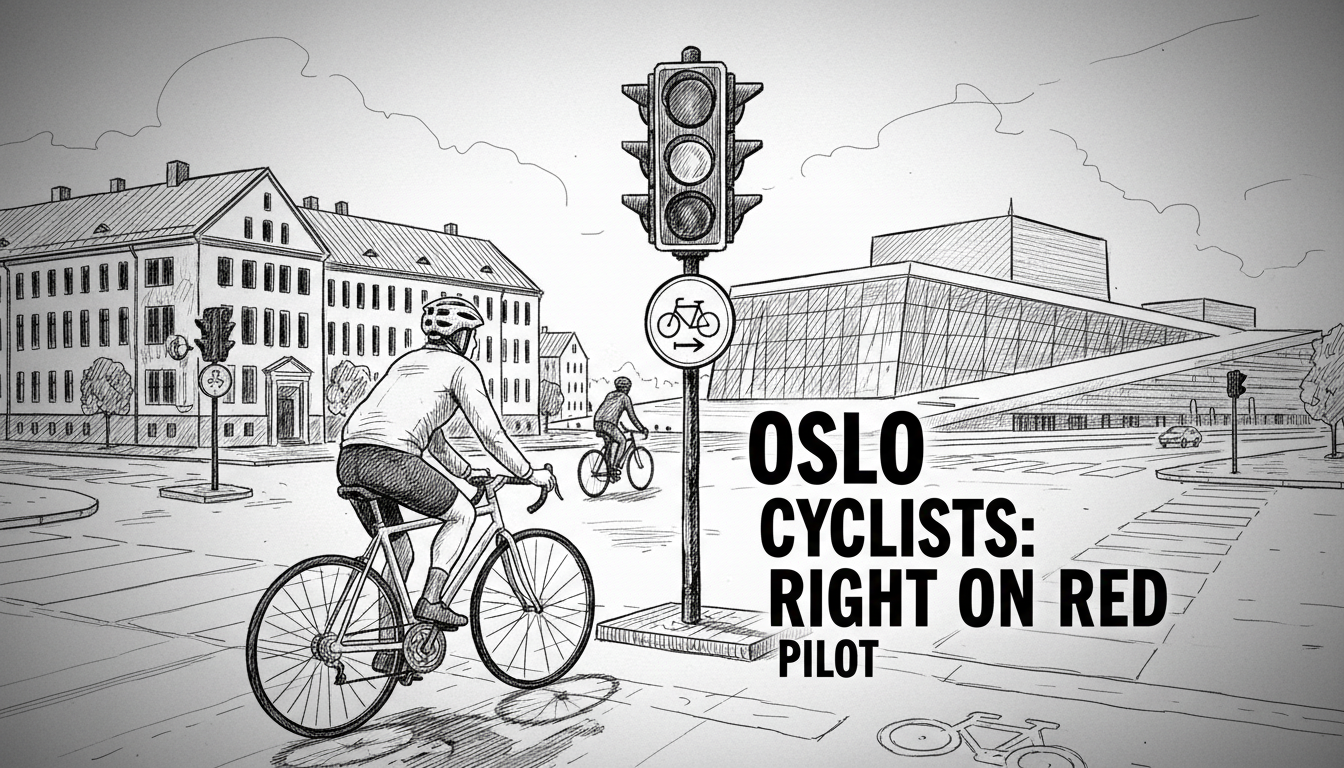Cyclists in Oslo will soon be permitted to make right turns at red traffic lights under a new pilot program. Selected intersections across the Norwegian capital will test this innovative approach to urban mobility.
The City Environment Agency developed the plan in collaboration with the Norwegian Public Roads Administration. Officials aim to implement the trial during the summer season.
Senior advisor Kjersti Bakken from the Public Roads Administration confirmed the timeline. She said the pilot project can proceed once updated sign regulations are in place.
With approval from the Ministry of Transport, the proposal will undergo public consultation. Bakken stated their goal is to establish new regulations for testing during summer months.
Three intersections will participate in the initial trial phase. Two locations will be in central Oslo while one will be situated outside the city center.
This traffic innovation represents a significant shift in Norwegian urban planning. Oslo has been aggressively pursuing bicycle-friendly policies in recent years. The city has removed parking spaces, added protected bike lanes, and implemented car-free zones throughout the downtown area.
Right turns on red lights for cyclists already function successfully in several European countries. The Netherlands permits this maneuver where specifically signed. Denmark, France, Belgium, and Germany operate similar systems.
Norwegian traffic safety experts have monitored these international examples closely. They note that properly implemented right-on-red policies can improve traffic flow while maintaining safety standards.
The pilot project aligns with Oslo's broader environmental objectives. City officials want to increase bicycle usage while reducing car dependency. Making cycling more convenient represents a key strategy in this effort.
Some traffic safety advocates express cautious optimism about the proposal. They emphasize the importance of proper intersection design and clear signage. Education campaigns for both cyclists and motorists will be crucial for successful implementation.
The trial period will provide valuable data about safety impacts and traffic flow improvements. Officials will monitor accident rates, cycling volumes, and intersection efficiency throughout the testing phase.
If successful, the program could expand to additional intersections across Oslo and potentially other Norwegian cities. This would mark another step in Scandinavia's ongoing transformation toward sustainable urban transportation.
International residents and visitors should note this change when cycling in Oslo. The new rules will require heightened awareness from all road users during the transition period.

